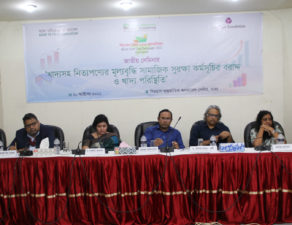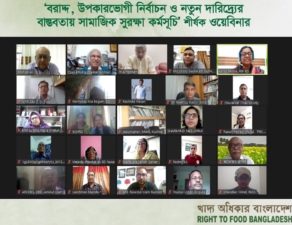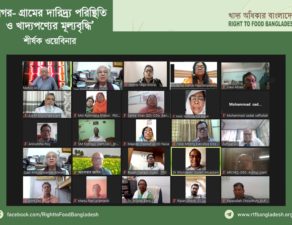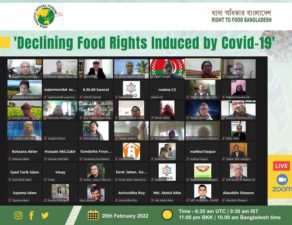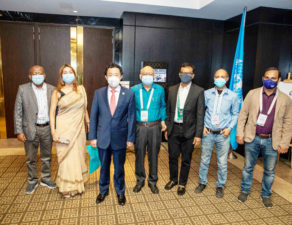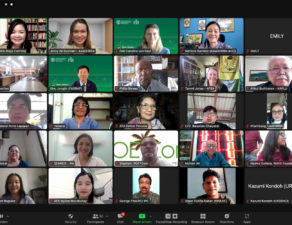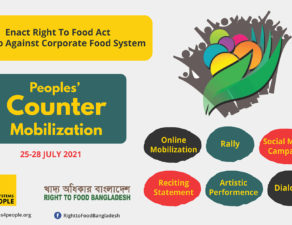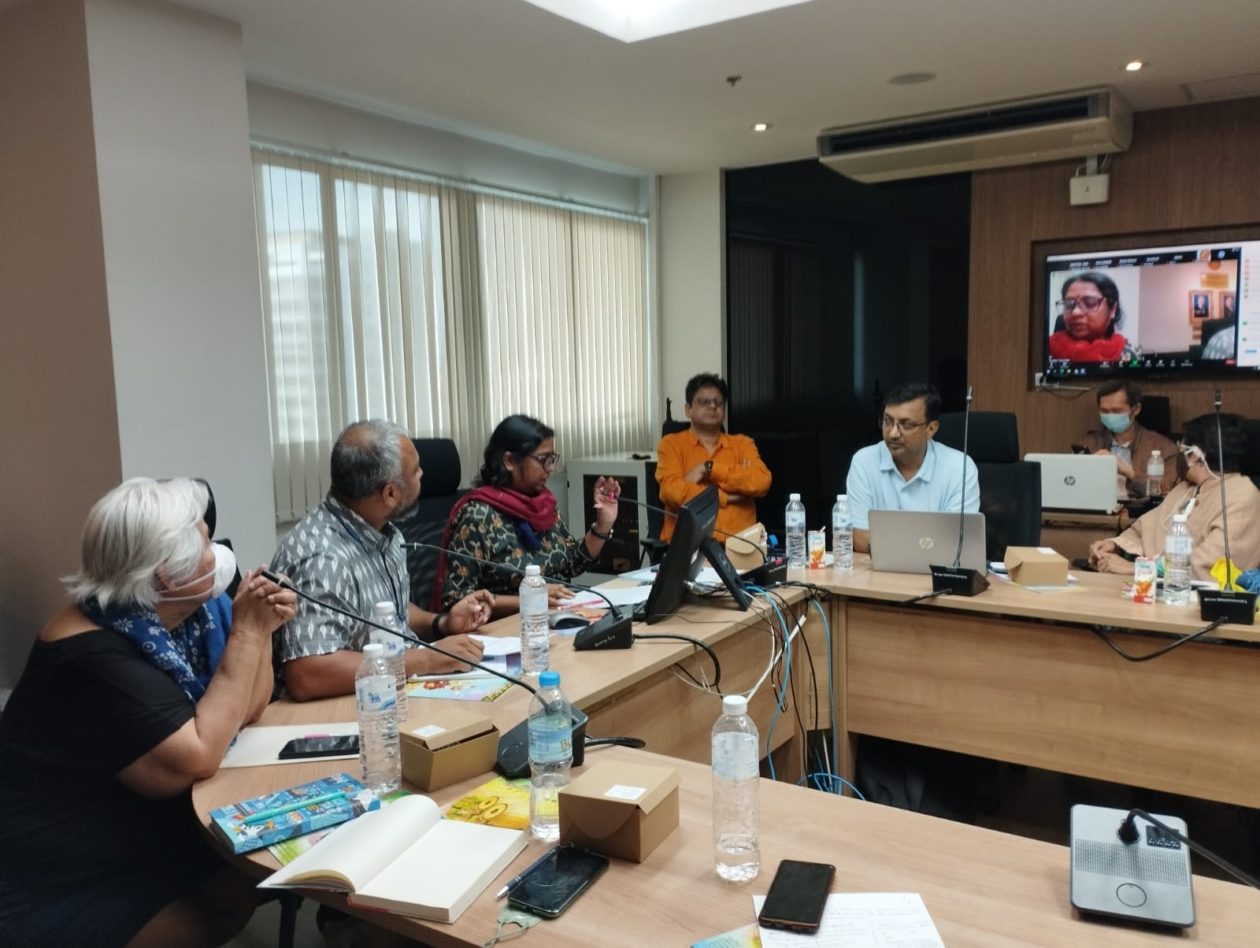
As part of the round of the programs of the Asia Pacific Social Forum, a three-day ‘Process Meeting’ was held in Thailand on August 10-12, 2022 with representatives of most countries countries in the Pacific region. Delegates presented their respective country contexts in moving forward with mutual involvement, opportunities and challenges. Kaniz Fatima, coordinator of Right to Food Bangladesh Network, participated in the Process Meeting and highlighted the challenges and opportunities of the impact of Covid-19 on food & nutrition, Russia-Ukraine war, global economic recession, income inequality, agriculture in Bangladesh context. Besides, referring to the ‘Asia Pacific Right to Food & Agri Food System Conference’ to be held next year under the initiative of the network, she highlighted the goals and objectives of the conference and cordially invited everyone to join. Also attended the `Process Meeting’ – Debbie Stothard from Myanmar; Ahmad Rifai from Indonesia; Corazon Fabros from Philippines; Jeyakumar Devaraj from Malaysia; Farooq Tariq from Pakistan; Arjun Karki from Nepal; Avinash Chanchal from India; Apoorva Gautam from Palestine; Boonthan T. Verawongse from Thailand; William Gois from Migrant Forum Asia; Laddawan Tantivitayapitak from ASEAN Peoples Forum,
Main decisions and observations from the participants based on consensus:
1. The social forum process is useful for movements in Asia. We must continue, to expand and intensify it.
2. The social forum space should mainly involve social movements, and sectorial networks which are in struggle.
3. IC needs to be more balanced/ inclusive. It is missing the social Movements globally and representation from Asia, also Africa. At least 1/3rd of the IC members must be from Asia. Asian networks must be encouraged to become part of the process.
4. The APSF will apply for IC membership which it can under the present rules of IC membership expansion: persons to be a part of IC as representatives of APSF Facilitation Committee: Boonthan, Meena Menon, Arjun Karki. Representation in the IC should be rotated- two people will replace two of the representatives in two years. One of the three members would stay on for continuity
5. We will also reach out to those who are not in this room, to encourage them to re-enter the social forum space ad make it a more inclusive truly Asia Pacific process.
6. The APSF facilitation group/ committee was formed afresh by all the members present in the room. Other interested people will be welcomed to join in.
7. People in the facilitation group must be willing to give time. There is another broader group for those who are interested but not able to give time.
8. There was a concern on trying to understand why people/ organisations drop out, why there is a vacuum, and why there was practically no social forum process in Asia after 2011. We need to learn from the past and not repeat mistakes.
9. APSF in Nepal. It was decided to explore the possibility of organising a presentialhybrid APSF event in Nepal in last quarter of 2023. A final decision will be taken in December 2022. Nepal Groups will come up with a proposal by then. Many issues eg funds, political situation, are important. The Facilitation committee will meet in Kathmandu, Nepal on 16-18 January 2023.
10. Calender of meeting points: There are several events happening in November and we need to find ways to engage with these meetings- Either by organising session inside events, or organising side Meetings. A few were identified:
a. ASEAN summit – 10-15th Nov 2022
b. ASEAN people’s forum – 1-4th Nov 2022
c. G20 – 13-15th Nov 2022 People’s forum – 7-9th Nov
d. APEC – 16-19th Nov 2022 People’s forum – 14-15th Nov
e. Bangladesh – Right to Food – December
11. The Facilitation Committee will continue meeting at 5pm (BKK time) on every Wednesday and the larger APSF General Meeting will continue to meet on 26th at 5pm BKK time
12. A few responsibilities were divided to prepare specifically for the possible APSF event in Kathmandu. Eg for fundraising, outreach, local liaison and logistics. It was also noted that:
• We need creative ways to manage everything- smart logistics, we need simultaneous interpretation, spaces for parallel sessions, skilled and motivated volunteers, and we must request help from the government for logistics.
• We should reach out to major networks so that they can send people, and participate online, and we need to encourage them to mobilize others as well and recommend that they raise funds.
• Event and Process are both important. National processes should be initiated.


